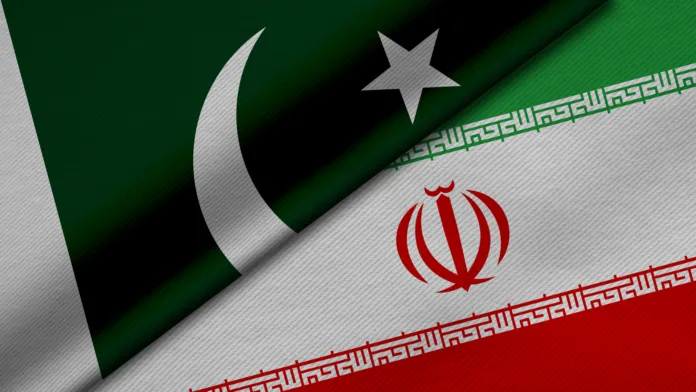In a dramatic turn of events this week, Pakistan and Iran exchanged air strikes, marking a significant escalation in tensions between the neighbouring nations. The heightened conflict adds to the already strained relations in the Middle East, further fueled by the ongoing Israel-Hamas war.
The situation risks spiralling out of control, especially as the Middle East experiences increased turmoil. The Israel-Hamas conflict, now lasting over 100 days, has set off reverberations globally, despite intensified diplomatic efforts.
Embed from Getty ImagesIran, already demonstrating its influence in the region, conducted airstrikes on Syria and Iraq before turning its attention to Pakistan. The latter, grappling with unrest in the Balochistan province and sharing a 900km volatile border with Iran, found itself at the centre of the brewing storm.
The timing is critical, given the recent US and UK strikes on Iran-backed Houthi rebels in Yemen, responding to their attacks on vessels in the Red Sea linked to Israel’s assault on Gaza.
The hostilities began on Tuesday when Iran launched strikes on Pakistan’s Balochistan province, resulting in the tragic death of two children and injuries to three others, as reported by Pakistani authorities. Iran claimed to target Jaish al-Adl, a Sunni separatist group, asserting that its strikes focused solely on Iranian terrorists within Pakistan’s borders.
However, Islamabad vehemently condemned the attack, labelling it an “illegal act” and an “unprovoked violation of its airspace by Iran.” In response, Pakistan recalled its ambassador to Iran and blocked the envoy from returning.
Two days later, on Thursday, Pakistan retaliated with airstrikes in Iran, targeting alleged militant hideouts and causing at least nine casualties. The operation, code-named “Marg Bar Sarmachar” (Death to Guerrilla), utilised various military assets, including Chinese-built fighter jets.
Attempting to ease tensions, Islamabad framed its actions as “highly coordinated and specifically targeted precision military strikes” in the Sistan-Baluchistan province. Pakistan asserted respect for Iran’s sovereignty and territorial integrity while emphasising the pursuit of its own security and national interest.
The targeted militant group in Baluchistan was identified as the Baluch Liberation Army (BLF), an ethnic separatist organisation fighting for autonomy and a fair share of resources since its formation in 2000. In response to the strikes, the BLF vowed retaliation, declaring war on Pakistan.
On the Iranian side, the target was Jaish al-Adl, a Baloch Sunni militant group that has opposed Iranian involvement in the Syrian civil war. Iran designated Jaish al-Adl as a terrorist organisation, pointing fingers at the US, Saudi Arabia, and Pakistan for alleged support.
The dangerous escalation between Pakistan and Iran adds a new layer of complexity to the already volatile Middle East, with global repercussions becoming increasingly apparent.
